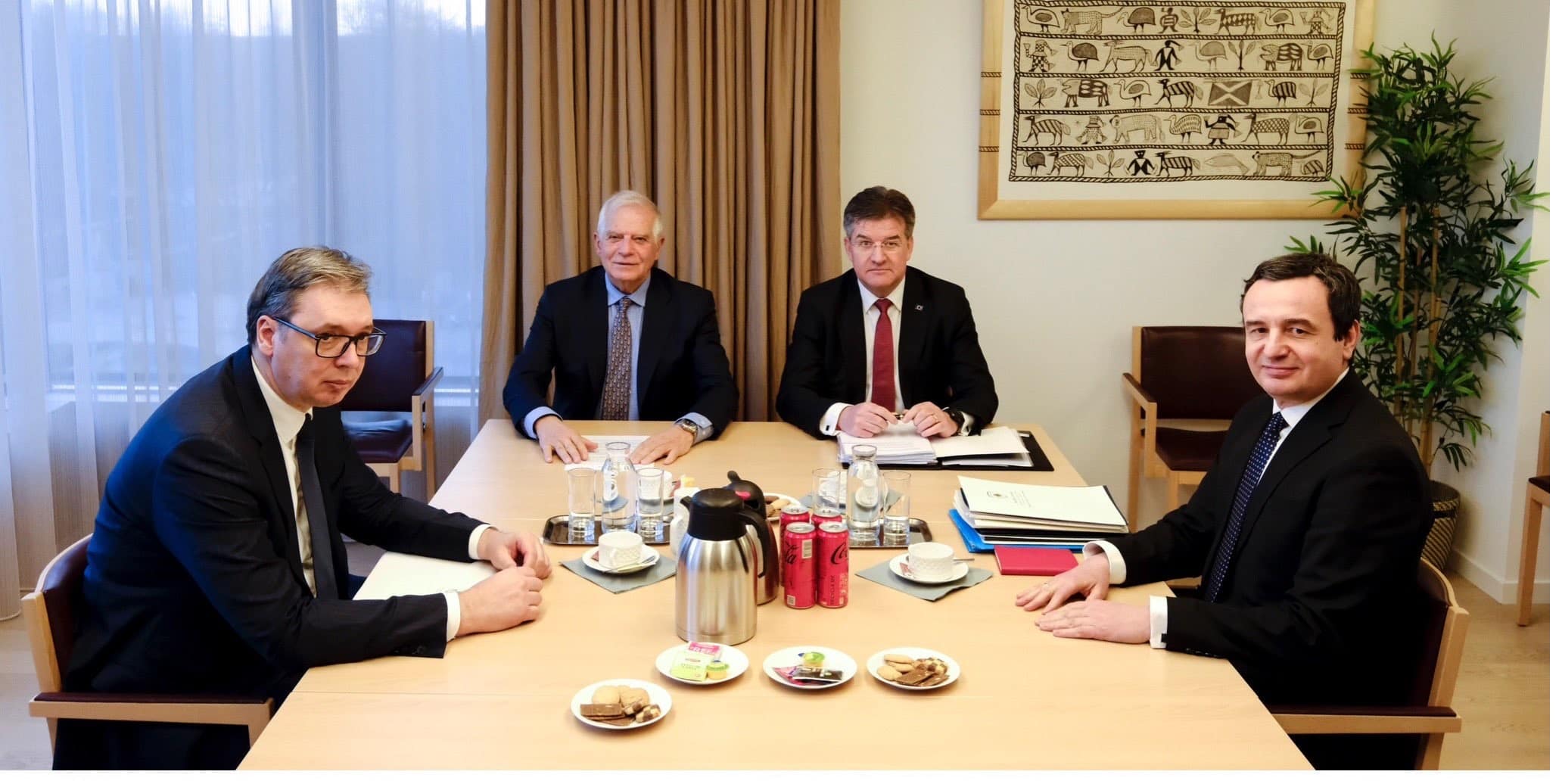Serbian President Aleksander Vucic (left) and Kosovo Prime Minister Albin Kurti (right) held talks in Brussels. Source: Josep Borrel twitter
On 26 February, Serbian president Aleksander Vucic and Kosovo Prime Minister Albin Kurti have agreed to back a proposed European Union plan for normalization of relations. But in a sign of persisting differences about its implementation, both countries did not sign the deal and tensions simmer on.
The agreement stipulates that both countries would recognize their respective documents and national symbols, and respect their independence, autonomy and territorial integrity, the right of self-determination, the protection of human rights, and non-discrimination.
In recent months, tensions flared over seemingly trivial matters like vehicle license plate formats, or the arrest of an ethnic Serb police officer. Kosovo’s government wanted to make those in majority ethnic Serb areas swap their Serbian-issued car number plates for Kosovan-issued ones. 50,000 people in these areas refused to use Kosovan number plates because they do not recognize Kosovo’s independence. Ethnic Serbs in the northern region of Kosovo, which borders Serbia, barricaded roads.
Refusal of recognition
Both countries want to join the EU, which has told them they first need to sort out their differences. The agreement says they will not hamper each other’s steps to join the bloc. At the heart of the tensions between the pair is Belgrade’s refusal to recognise Kosovo’s independence. The former Serbian province, home to an Albanian majority, broke away in 2008, a decade after a bloody war that only ended with a NATO bombing campaign led by the US. According to Kurti, the “centrepiece” of any pact must be the recognition of Kosovo by Serbia, which with the support of its Russian ally, blocks Pristina from taking a place at the UN. He have said earlier “Kosovo is an independent country and it would be better for Serbia to recognise it”. However, this is not the intention of Vucic who said after the meeting with the EU and Kurti “as long as I am the president of the republic, I will not sign either formally or informal recognition of Kosovo, nor its membership in the UN.
The sore point of CSM
Western powers want the small Balkan territory of 1.8 million people to create an association of municipalities where members of the Serbian minority live. This idea was first proposed under an agreement concluded under the eyes of Brussels a decade ago. Kurti claims this would amount to creating a potentially subversive Serbian power in parallel to Kosovan institutions. Vucic has previously emphasized that before signing any agreement, he needs to see an implementation plan for an Association of Serb-Majority Municipalities (CSM). These would consist of ten majority Serbian municipalities that have their own symbols, flags, president, vice president, council and own budgets. There are also responsibilities in the areas of health, education, economy, communal services and urban and rural development. This community would have the right to practically unlimited cooperation with Serbia in all important matters.
Although it was expected that the Association of Serbian Municipalities would come to life by 2015, it did not happen. In that year, Kosovo’s request to become a UNESCO failed due to the lack of the necessary two-thirds majority of votes at the conference. The next day, Kosovo froze the agreement and later declared it unconstitutional. Such a decision wasn’t surprising because a single-national organization with executive powers fundamentally violates the spirit of the Kosovo Constitution, which defines Kosovo society on the principles of multi-ethnicity. Since then, the implementation of the Brussels Agreement has been frozen and the diplomatic war between Belgrade and Pristina has continued.
For more info, read our previous article on Serbia and Kosovo: Kosovo and Serbia reach deal on license plates after earlier talks failed
or: Tensions in Kosovo intensified by resignations of Serbs in public positions
Author: Manouk Bronzwaer



